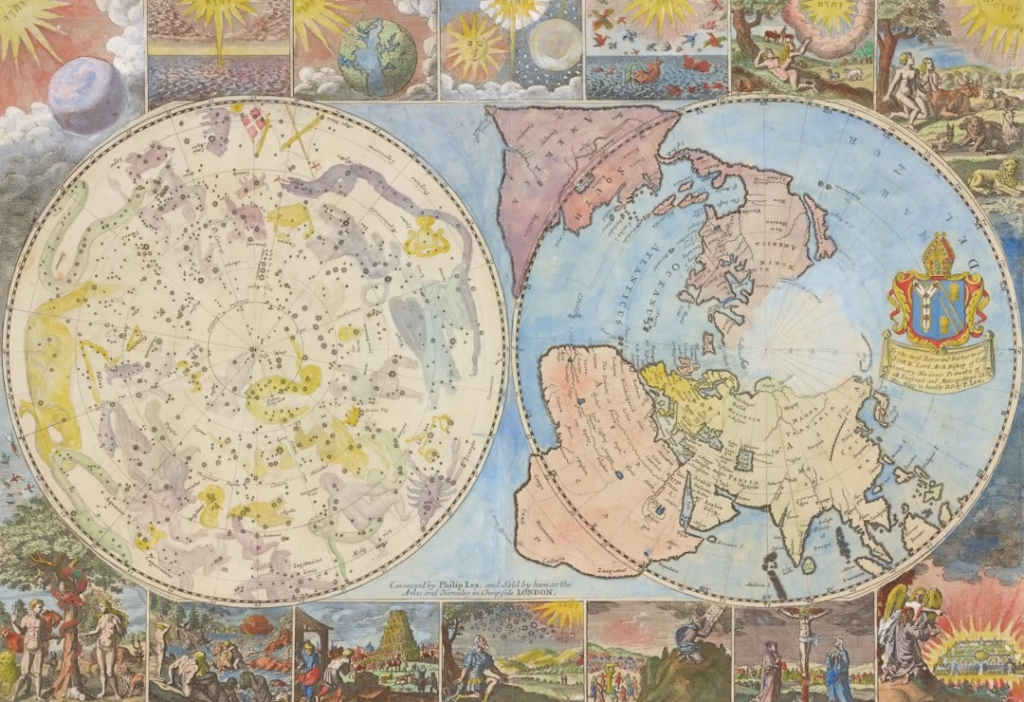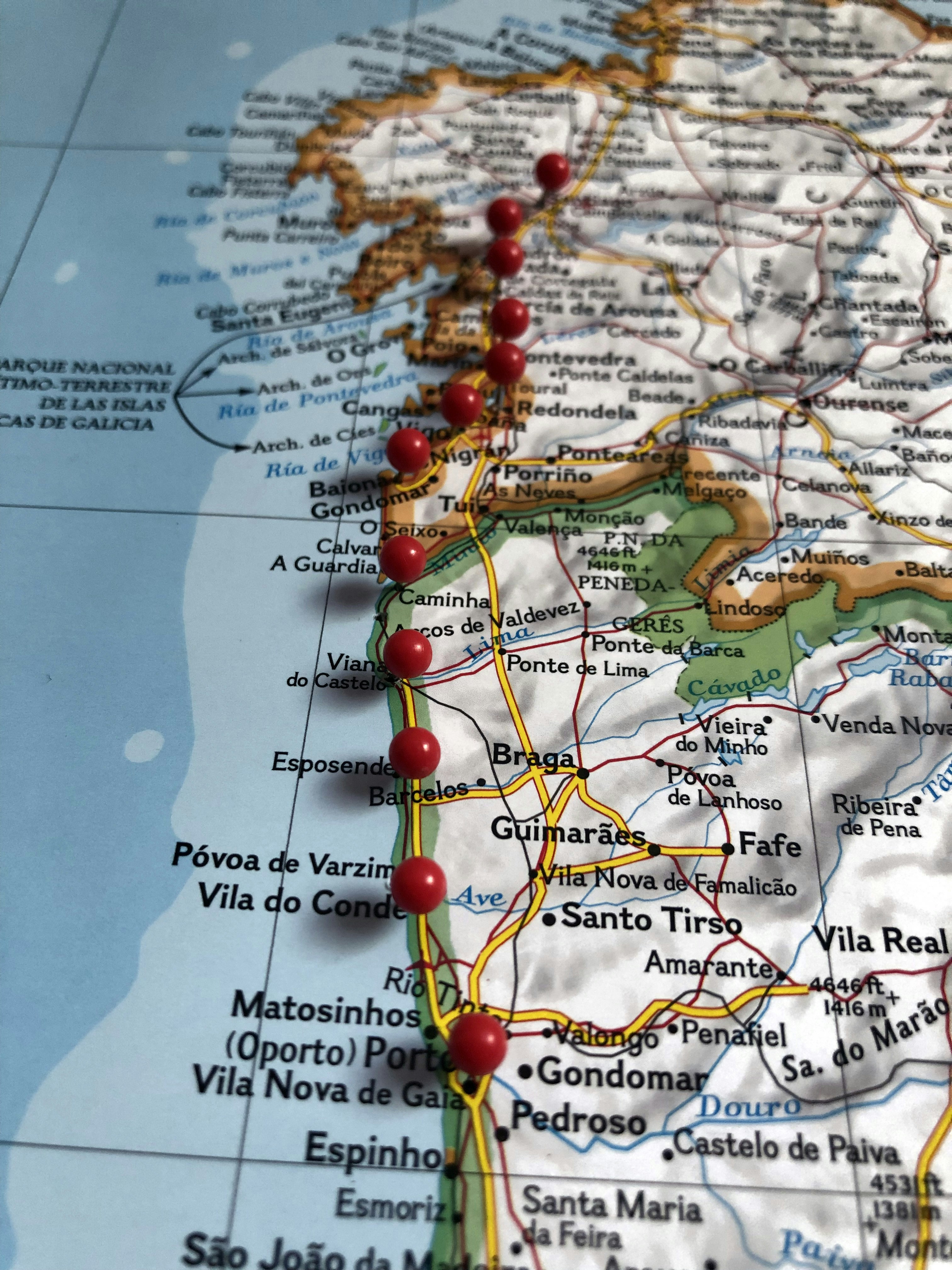Learn 1000 Short Portuguese Phrases — A Practical Guide for Beginners

Short Portuguese phrases, everyday phrases are the fastest route to real conversation. Instead of memorizing long grammar rules, learn pockets of language you can use immediately: greetings, questions, reactions and survival phrases. Below you’ll find a focused plan, essential examples, and smart practice methods to help you absorb useful Portuguese quickly and naturally. Why short phrases work better for beginners Short Portuguese phrases are memorable, practical and reusable. They let you: How to practice these phrases effectively Use a simple routine that fits your life. Try this three-step loop: Tip: record yourself and compare to native speech. Focus on rhythm and stress rather than perfection. 10 essential Portuguese phrases to learn first These cover greetings, polite expressions and a couple of must-have travel lines. Useful categories with sample phrases Greetings and small talk Questions and directions about Short Portuguese phrases Emergencies and health Social responses and emotions about Short Portuguese phrases Everyday tasks (shopping, restaurants) Pronunciation shortcuts for beginners Focus on a few consistent patterns: Study plan for mastering 1000 phrases Where to get more phrases and practice materials Downloadable worksheets and organized phrase lists speed progress. A recommended resource is a printable PDF with many short phrases and English translations. Also explore language practice platforms that let you listen to native pronunciation and repeat along. Extra tips to stay motivated in Short Portuguese phrases Final note about Short Portuguese phrases Learning short, useful phrases builds immediate communicative ability and sets a foundation for more advanced grammar. Keep practicing, keep repeating, and use phrases in real contexts whenever possible. Enjoy the journey — Portuguese rewards curiosity and persistence. Useful links:
The Entire History of the Portuguese Empire: From Ceuta to Macau

History of the Portuguese Empire. A tiny kingdom on Europe’s Atlantic edge transformed the map of global trade. Between the capture of Ceuta in 1415 and the handover of Macau in 1999, Portugal built one of history’s longest-lived maritime empires. Its sailors charted new sea routes, linked continents, and created commercial networks that shaped the modern world—while also leaving a legacy of violence, forced labor, and contested sovereignty. How a small kingdom looked seaward Portugal’s expansion began after the Reconquista, when the country’s borders were secured by the mid 13th century. With further conquest on the Iberian Peninsula off the table, Portuguese ambition turned to the sea. The capture of Ceuta in 1415 was the first outward step. Rather than simply prolonging the Christian–Muslim conflict on land, Ceuta became a logistical base for Atlantic exploration and trade. The country’s early maritime policy was championed by Prince Henry the Navigator. Using advances in navigation, ship design such as the caravel, and an appetite for charting unknown waters, Portuguese mariners explored the Atlantic archipelagos (Madeira, Azores), probed down the West African coast, and slowly pushed past previously feared obstacles like Cape Bojador. From rounding the Cape to reaching India Portuguese seafarers achieved two world-changing feats in the late 15th century. In 1488 Bartolomeu Dias rounded the southern tip of Africa and entered the Indian Ocean, proving a sea route east existed. In 1494 Portugal and Spain agreed to divide the newly discovered world with the Treaty of Tordesillas—a meridian that granted lands to the east to Portugal and to the west to Spain. Vasco da Gama’s voyage (departed 8 July 1497) realized the long-sought direct maritime route to Asia when he reached India in May 1498. That route opened European access to lucrative spice markets and laid the foundation for a chain of fortified ports across Africa and Asia. Key early expansions and discoveries about History of the Portuguese Empire Trade networks, forts, and the instruments of empire Rather than large continental conquests, Portugal built an empire of maritime nodes: forts, trading posts, and coastal enclaves. From West Africa to the Persian Gulf, from India and Southeast Asia to Japan, Portuguese ships linked a 14,000-mile route that funneled spices, textiles, gold, ivory, sugar, and slaves back to Lisbon. The empire’s commercial success relied on three features: Religion, coercion, and cultural encounters Catholic missionaries—especially Jesuits—accompanied merchants, soldiers, and administrators. Missionary activity varied from diplomatic and educational work to violent coercion. The Goa Inquisition exemplifies the harsher side of conversion campaigns, while Portuguese contacts also helped establish Christian communities and trading links in places like Nagasaki. The Iberian Union and the slow decline in History of the Portuguese Empire A succession crisis in 1580 put Portugal under the Spanish king, beginning the Iberian Union. As Spanish enemies targeted Iberian wealth, Portugal’s global network became vulnerable. The newly independent Dutch, English, and French pressed into Asian and African trade routes. The Dutch–Portuguese War (1598–1663) saw Portugal lose many Asian and African holdings even as it held on to some territories in Brazil. The Restoration of Portuguese independence in 1640 could not fully reverse a shrinking reach. By the late 17th century the empire’s focus shifted increasingly to Brazil, which became Portugal’s crown jewel after sugar and later gold discoveries. Brazil: sugar, gold, and demographic change Colonial Brazil grew slowly at first, driven by sugar plantations that demanded vast amounts of labor. This labor was largely met through transatlantic slavery. In the late 17th and 18th centuries gold and diamond discoveries in Minas Gerais triggered a migration boom and a dramatic increase in revenue—by the mid 18th century gold accounted for nearly half of Brazil’s exports in some periods. Brazil’s economic and demographic weight, combined with global revolutionary currents and eventual royal relocation, produced a decisive rupture. When the Portuguese royal family moved to Rio de Janeiro in 1808 to escape Napoleon’s invasion, Brazil’s political status rose. In 1822 Dom Pedro I declared Brazil independent, and Portugal’s empire entered a third era reduced mainly to African colonies and Asian enclaves. Portuguese for foreigners Brazilian vs European Portuguese Late imperial struggles and the end of empire The 19th century’s Scramble for Africa exposed Portugal’s limited power. An 1890 British ultimatum forced Portugal to abandon overland ambitions in southern Africa, a blow to national prestige that helped topple the monarchy in 1910 and usher in the Portuguese Republic. Throughout the 20th century Portugal clung to its African colonies under the Estado Novo dictatorship. A set of colonial wars from 1961 to 1974 drained resources and eroded domestic support. The Carnation Revolution of 25 April 1974 ended authoritarian rule and accelerated decolonization. Angola and Mozambique became independent in 1975. The final overseas transfer occurred when Macau returned to China on 20 December 1999. Legacy: language, trade routes, and contested history The Portuguese Empire’s impact endures in multiple ways. Portuguese is spoken today by about 250 million people across several continents. The sea routes and maritime knowledge developed by Portuguese navigators helped establish global trade patterns that persist to this day. Yet that legacy is complex. The empire enabled cultural exchange, trade, and the spread of technology, while also entailing slavery, violent conquest, and cultural suppression. Understanding the Portuguese Empire means recognizing both its role in knitting together the early modern world and the human costs that accompanied that process. Essential timeline about History of the Portuguese Empire How to think about the Portuguese Empire today The history of Portugal’s global empire is a study in contrasts: innovation and brutality, connectivity and exclusion. Its navigators opened oceanic highways that still move goods and people today. Its administrators created political and cultural ties across continents that remain visible. But those achievements were built on systems of domination, forced labor, and conflict. Recognizing both the achievements and the harms offers a fuller picture—not to celebrate uncritically, nor to erase contributions, but to understand how a small kingdom remade the globe and how that remaking still shapes the world we live in.
How Angolan Portuguese influenced Portugal

Angolan Portuguese influence on Portugal. Angolan Portuguese is not just an accent or a handful of borrowed words. It is the result of centuries of language contact between Portuguese and Angola’s national languages. Over the past few decades, migration and cultural exchange have carried Angolan expressions into everyday speech in Portugal, changing vocabulary, slang, and even meanings. Brief history: how Portuguese and Angolan languages met Portuguese became widely enforced in Angola only in the 1950s. Before that, many Angolans spoke local languages such as Kimbundu, Kikongo, Mbundu and regional varieties like Fiote. After independence and during later waves of migration to Portugal (notably in the 1990s), Angolan Portuguese—and many of its characteristic words—spread into metropolitan Portuguese. Why Angolan Portuguese sounds and feels different What some call “slang” in Angolan Portuguese is better seen as the natural evolution of a multilingual society. Words from national languages were adapted into Portuguese grammar and pronunciation and became everyday vocabulary. These are not merely loanwords: they reflect social relationships, local realities, and new ways of speaking that travel with people. Words that travelled—and how they changed meaning Below are common Angolan Portuguese words: Their origins, and how you might hear them used in Angola vs Portugal Portuguese language and culture European Portuguese vs Brazilian Portuguese Live Classe of Portuguese for foreigners Phrase examples with translations in Angolan Portuguese influence on Portugal Language contact in practice in Angolan Portuguese influence on Portugal Language change is rarely top-down. In Angola, Portuguese spread alongside and through national languages, and many communities developed mixed vocabularies that make sense in local contexts. When people moved to Portugal, they brought those vocabularies with them. As a result, younger speakers and new generations in Portugal adopted words like ya and bué, sometimes shifting their meanings slightly. This is a natural process: words move, meanings shift, and new norms appear. What started as localized expressions become part of broader urban speech, appearing in music, nightlife, and everyday conversation. Quick cheat sheet for learners about Angolan Portuguese influence on Portugal Final thoughts about Angolan Portuguese influence on Portugal Angolan Portuguese is a great example of how languages adapt and grow through contact. Borrowings from Kimbundu and other national languages created expressions that are lively, expressive, and sometimes surprising when they cross borders. For anyone learning Portuguese, paying attention to regional varieties like Angolan Portuguese opens up new vocabulary, new cultural references, and a richer understanding of how people actually speak. Explore Angolan songs, movies, and everyday conversations to hear these words in action. The language tells stories about migration, history, and identity—so listen for the surprises.
Origins of the Names of Portugal’s Provinces, Districts and Autonomous Regions

Origins of the names of Portugal regions. In Portugal, the names of provinces, districts and islands reveal geography, conquest, language contact and centuries of daily life. Below is a guided tour through the etymology of Portugal’s historical provinces, the names of its district capitals and the two autonomous archipelagos, explained in a clear and conversational way. Historical provinces: meanings behind the six original names Portugal’s first large-scale internal division, appearing around the 15th century, grouped the country into six provinces from north to south. Each name highlights a geographic feature, a frontier or a cultural contact. From six provinces to eleven: small shifts, familiar names By the 19th and 20th centuries the provincial map was redrawn into 10, then 11 provinces. The new names mostly split existing regions into upper and lower zones or coastal and inland parts. Examples include: Portuguese history and culture Learn European Portuguese Districts: towns that give their names to whole regions Portugal’s modern political map centers on 18 districts (plus two autonomous regions). Each district usually takes the name of its capital city, so the origin of a district name is often the origin of a city name. Here’s a north-to-south look at the most interesting etymologies. North and inland names of origins of the names of Portugal regions Central and western names in origins of the names of Portugal regions South and Algarve Autonomous archipelagos: Madeira and the Azores Portugal’s two autonomous regions both carry straightforward place-name stories tied to what early navigators observed. Why these names matter in origins of the names of Portugal regions Place names are compact stories. They tell us about geography (rivers and mountains), political history (frontier zones and Roman honours), language contact (Arabic, Celtic, Latin, Phoenician), and even everyday life (a “pleasant crossing” that becomes Portalegre). Understanding toponyms helps with navigation of historical maps, cultural identity and language learning. If you enjoy exploring names and their roots, trying out a conversation class in Portuguese can make the stories behind words come alive. I often use italki to practice with native speakers — it’s an easy way to find teachers, try different accents and get feedback on pronunciation. If you want structured practice, search for teachers who focus on history, culture or regional vocabularies. Quick reference: selected name origins Final thought Every place-name is a layer of history about origins of the names of Portugal regions. Rivers and mountains, armies and settlers, saints and trees — all of these left traces in the words we still use today. Exploring the etymology of Portugal’s provinces, districts and islands is an accessible way to connect language, landscape and history.
Discover How Emotional Education

Dircover how emotional education has become one of the most powerful tools in modern learning. Whether you are teaching Portuguese to beginners or helping advanced learners sound more natural, emotions play a crucial role in how people absorb, remember, and apply new knowledge. For learners who want to speak confidently, emotional awareness can be the missing piece that unlocks fluency and motivation. In this article, you will discover how emotional education enhances language learning, how it supports Portuguese learners at different levels, and why platforms like Portuguese Native place special emphasis on emotional connection inside the learning process. What Is Emotional Education? Dircover how emotional education refers to the development of skills such as: These skills are essential in everyday life, but surprisingly, they are also fundamental in language acquisition. When students feel emotionally safe, confident, and motivated, their brain absorbs new information more deeply. This is why emotional intelligence (EI) is now widely recognised as a key element in modern teaching methodologies. Why Emotional Education Matters in Language Learning Learning a new language is not only a cognitive task—it is also an emotional journey. Students face fears such as: Emotional education helps learners break these psychological barriers. Instead of avoiding challenges, they learn to embrace the process and celebrate progress. This approach increases motivation, improves speaking performance, and creates a healthier relationship with learning. Emotions and the Brain: Why You Learn Faster When You Feel Better Scientific research shows that positive emotions stimulate areas of the brain responsible for: When learners feel anxious or stressed, these areas are blocked, reducing their ability to understand grammar rules, memorise vocabulary, or practise pronunciation. On the other hand, emotional safety encourages students to participate actively, make mistakes without fear, and engage with the material more naturally. This is especially important for learners of Portuguese, a language that includes nuances like ser vs estar, gender agreement, irregular verbs, and pronunciation challenges. How Emotional Education Helps Learners of Portuguese 1. Increases Confidence to Speak Many students understand Portuguese but are afraid to speak. Emotional education teaches them how to manage fear and shift to a growth mindset. 2. Encourages Consistency Emotional regulation helps learners create habits, practise daily, and stay motivated over long periods. 3. Improves Memory and Dircover how emotional education Emotionally meaningful experiences strengthen long-term memory, making vocabulary and expressions easier to retain. 4. Reduces Anxiety During Grammar Learning Topics like verb conjugations, past tenses, and the difference between ser and estar become less intimidating when students feel mentally prepared. 5. Helps Students Connect Culturally Understanding emotions also helps learners interpret tones, behaviours, and cultural expressions used by native speakers. Practical Ways to Apply Emotional Education When Learning Portuguese 1. Set Emotional Goals Instead of only focusing on grammar, include goals like: 2. Use Encouraging Self-Talk Replace “I’m terrible at languages” with: 3. Practise Mindfulness Before Lessons A simple breathing exercise increases focus and reduces nervousness. 4. Celebrate Small Wins Recognise progress such as: 5. Communicate With Emotionally Aware Teachers A supportive teacher creates a safe environment where students feel comfortable trying, failing, and trying again. See more: Why Learning Portuguese Opens More Doors Than You Think Why the Portuguese Native Community Embraces Emotional Education At Portuguese Native, the learning experience combines language instruction with emotional awareness. Students benefit from: This method helps learners develop not just knowledge—but also emotional strength and resilience. Final Thoughts about Dircover how emotional education Emotional education is not just an abstract concept—it is a practical, powerful tool that transforms the language-learning experience. When students learn to understand their emotions, they speak with more confidence, practise more consistently, and enjoy the process. For anyone learning Portuguese, integrating emotional intelligence into your study routine can accelerate progress and create a more meaningful, human connection with the language.
Learn to Speak Portuguese with Confidence

Learn to Speak Portuguese with Confidence – Why Learning Portuguese Is a Life-Changing Experience? There are languages you study… and there are languages you feel. Portuguese belongs to the second group.It’s a language filled with emotion, rhythm, and stories — one that instantly connects you with people, places, and passions across the world. Spoken by more than 260 million people, Portuguese is the official language of nine countries, each with its own accent, traditions, and expressions. From Lisbon’s calm elegance to Rio’s joyful melodies, learning Portuguese allows you to explore not only a language but an entire world of culture. The First Step: Learn to Speak Portuguese with Confidence Many learners make the same mistake at the beginning — they wait until they “know enough” to start speaking. But fluency doesn’t come from waiting. It comes from doing. When you start learning Portuguese, focus on communication, not perfection. Don’t be afraid of mistakes — they are proof that you’re growing.Native speakers appreciate effort, and they’ll often help you find the right words. The faster you start speaking, the faster you’ll start thinking in Portuguese. Learn from Native Speakers — Your Shortcut to Fluency If your goal is to sound natural, learning from native speakers is essential.Native teachers help you understand not only the words, but the emotions and rhythm behind them. At Portuguese Native, all classes are taught by certified native tutors who focus on real communication, not memorisation. You’ll learn how people actually speak in Lisbon, Porto, or São Paulo — how they greet each other, express emotions, and use idioms that don’t appear in textbooks. This immersion-based learning style helps you build authentic pronunciation and cultural awareness from day one. The Secret Ingredient: Learn to Speak Portuguese with Confidence Fluency begins with your ears.When you listen to Portuguese daily, your brain starts recognising rhythm, sounds, and patterns naturally. Spend at least 15 minutes a day listening to native content — podcasts, audiobooks, or even songs. Don’t worry if you don’t understand every word at first. What matters is exposing your mind to the melody of the language. Soon, you’ll begin to anticipate what comes next — that’s how your brain starts to think in Portuguese. Build Confidence Through Daily Practice Speaking Portuguese confidently doesn’t happen overnight — but a few minutes of daily practice can change everything. Here’s a simple plan you can follow: Consistency is more important than duration. Ten focused minutes daily are worth more than two hours once a week. Embrace the Culture — Not Just the Grammar Grammar matters, but culture gives the language life. To sound like a native, you must also understand how Portuguese speakers feel and think.Watch movies, follow local influencers, cook traditional dishes, and learn about customs from Portugal or Brazil. When you connect with the culture, your vocabulary grows naturally — and your pronunciation begins to mirror the way natives express emotion. Language is not only about what you say, but how you say it. Why Portuguese Is Easier Than You Think Many learners believe Portuguese is difficult. The truth? It’s one of the easiest Romance languages for English or Spanish speakers to learn. The grammar is logical, pronunciation is consistent, and many words are similar to other European languages. For example: If you already speak another Latin-based language, Portuguese will feel familiar — like meeting an old friend who speaks in a new rhythm. Your Path to Fluency Starts Today Fluency is not just a goal — it’s a journey filled with discovery. Each new word brings you closer to people, culture, and confidence. With the right guidance, you can start speaking Portuguese naturally within weeks. At Portuguese Native, you’ll find: If you’ve ever dreamed of speaking a new language with elegance and emotion, Portuguese is waiting for you. Final Thoughts about Learn to Speak Portuguese with Confidence Portuguese is more than a language — it’s a bridge between cultures, a melody that invites connection, and a skill that can change your life. Start small, stay consistent, and surround yourself with Portuguese every day.Soon, you won’t just understand the words — you’ll feel them. Because when you learn with passion and practice with natives, you don’t just learn Portuguese…You learn to speak it with confidence, heart, and soul.
Learn Basic Portuguese for Your Trip to Brazil

Why It’s Worth Learning a Bit of Portuguese Before Traveling Learn Basic Portuguese for Your Trip to Brazil – If you’re visiting Brazil soon, knowing a few basic Portuguese words and expressions can make all the difference.Even if you don’t speak fluently, locals really appreciate when you try — and you’ll instantly feel more welcomed. From ordering a meal to asking for directions, every “Olá” or “Obrigado” opens new doors. Plus, it helps you avoid misunderstandings, save time, and enjoy Brazil like a local. 💡 Start learning now with our Portuguese online courses — perfect for travelers and beginners who want to feel confident abroad. Everyday Phrases to Use in Brazil Here are some simple and friendly expressions you’ll hear every day: English Portuguese Pronunciation Hello Olá oh-LAH How are you? Como vai? KOH-moo VA-ee Good morning Bom dia bohn JEE-ah Thank you Obrigado / Obrigada oh-bree-GAH-do / dah Please Por favor por fah-VOR Excuse me Com licença kohm lee-SEN-sah Sorry Desculpe des-KOOL-pee Goodbye Tchau chow 👉 Use these words with a smile — Brazilians love warm communication! Ordering Food Like a Local Brazilian food is full of color, flavor, and stories.Knowing just a few words can make your dining experience even better: English Portuguese I’d like… Eu gostaria de… The menu, please O cardápio, por favor Water Água Coffee Café Juice Suco Bill, please A conta, por favor Delicious! Delicioso! To learn these words in a fun way, read this great guide:Learn Portuguese through Brazilian songs and movies Getting Around the City Even in big cities like São Paulo or Rio, English is not common in every area.That’s why these short phrases are life-savers: English Portuguese Where is the hotel? Onde fica o hotel? How do I get to the beach? Como chego à praia? I need a taxi Preciso de um táxi Left / Right Esquerda / Direita Straight ahead Em frente Airport Aeroporto 📍 Locals are friendly and helpful — don’t be afraid to ask for directions! Talk About Yourself and Make Friends Brazilians are social people who love talking and meeting new friends.Here are some phrases that help you connect naturally: English Portuguese I’m from… Eu sou de… I’m visiting Brazil Estou a visitar o Brasil I love this city! Eu adoro esta cidade! It’s beautiful here É lindo aqui I’m staying for two weeks Vou ficar por duas semanas The more you talk, the more confident you’ll feel — and the faster you’ll learn. Easy Ways to Practice Every Day and Learn Basic Portuguese Learning Portuguese doesn’t have to be hard. Here’s how you can practice daily, even if you’re busy: Small daily habits lead to real progress — and soon, you’ll start thinking in Portuguese! Discover the Culture Behind the Words for Learn Basic Portuguese Portuguese isn’t just a language — it’s a reflection of Brazil’s heart.When you learn words like “saudade” (a deep emotional longing) or “jeitinho” (creative problem-solving), you begin to understand how Brazilians see the world. Learning these cultural details helps you not only speak the language but live it. Final Thoughts Traveling to Brazil becomes much easier and more enjoyable when you know basic Portuguese.You’ll connect better, feel more confident, and enjoy real experiences that go beyond the tourist route. So start today — even a few minutes of study can change how you experience your next trip. 👉 Join our Portuguese courses for beginners and prepare to speak Portuguese with confidence when you land in Brazil!
Learn Portuguese Online Courses 2025

The Importance of Learning Portuguese in Today’s Global Landscape In an increasingly interconnected world, Learn Portuguese has become essential for those seeking to broaden their horizons, both personally and professionally. As one of the most spoken languages globally, with over 250 million native speakers, Portuguese ranks as the sixth most spoken language and is the official language of nine countries, including Portugal, Brazil, and several African nations such as Mozambique and Angola. This widespread usage underscores the language’s cultural and economic significance. The cultural relevance of Portuguese extends beyond just the nations where it is spoken. With a rich literary tradition, vibrant music, and a diverse range of art, Learn Portuguese enhances access to a wealth of cultural experiences. For instance, Brazil is renowned for its Carnival, samba, and literary contributions, while Portugal boasts a history characterized by exploration and artistry. Engaging with these cultures through language fosters deeper connections and appreciation, enriching one’s personal growth. From an economic perspective, Portuguese presents numerous opportunities, particularly in emerging markets. Brazil, as the largest economy in Latin America, offers considerable prospects for business, trade, and investment. Moreover, the economic growth of African Portuguese-speaking countries has been noteworthy, attracting foreign investments and enhancing trade partnerships. Learn Portuguese, therefore, equips individuals with a competitive edge in the job market, especially for careers in international business, tourism, and diplomacy. Furthermore, as globalization continues to shape economies and societies, multilingualism has become a vital skill. Proficiency in Portuguese opens up professional avenues in various fields, including healthcare, education, and technology. In summary, the importance of Learn Portuguese in today’s global landscape is underscored by its cultural richness, expanding economic opportunities, and the increasing demand for multilingual professionals. Embracing the language not only aids personal development but also enhances career prospects in a diverse and dynamic world. Benefits of Online Courses with Live Classes Enrolling in for learn Portuguese online courses that offer live classes with Preply and Portuguese native presents numerous advantages that can significantly enhance the learning experience. One of the most notable benefits is the real-time interaction these courses provide. Students can engage directly with instructors and classmates, facilitating dynamic discussions that deepen understanding and retention of the language. This immediate communication fosters a sense of community, reducing the isolation often felt in self-paced learning environments. Additionally, the availability of live classes allows for immediate feedback, enabling learners to address mistakes and clarify doubts on the spot. This instant response is invaluable for language acquisition, as it helps reinforce correct pronunciation and usage in a supportive setting. Furthermore, when students receive prompt feedback from instructors, they can adjust their study techniques to suit their learning style better, ultimately leading to more efficient mastery of Portuguese. The flexibility offered by online courses with live classes is another advantage that appeals to many learners. With varying schedules and commitments, the option to attend classes from home eliminates the need for travel and provides a convenient way to fit learning into busy lifestyles. Students can choose class times that best suit their availability, making it easier to balance work, study, and personal obligations. Moreover, the element of live interaction inherently enhances motivation and engagement. When students join a class, they participate in a learning environment that encourages collaboration and shared experiences. Top Online Portuguese Courses for 2025 As the demand for learning Portuguese continues to grow, several online platforms have emerged, offering live classes tailored to different proficiency levels. When choosing the best online courses for 2025, it is essential to evaluate various factors such as course offerings, teaching styles, accreditation, and pricing. Below, we provide a comparison of leading platforms that cater to a diverse range of learners. One of the most prominent players in this space is Rosetta Stone, known for its immersive teaching style which encourages conversational proficiency right from the start. This platform incorporates speech recognition technology to assist learners in mastering pronunciation. Furthermore, their courses come with a flexible subscription model that can accommodate beginners to advanced speakers. Babel is another excellent choice for those seeking structured lessons. The platform prioritizes interactive content and cultural insights, appealing to learners interested in understanding language nuances. Its comprehensive curriculum is designed for beginners, with engaging features such as podcasts and quizzes that foster an effective learning environment. For more academic-focused learners, Coursera offers courses developed by reputable universities, providing a more formal approach to language acquisition. These courses often include accreditation upon completion, making them ideal for professionals looking to enhance their resumes. The pricing varies depending on the institution but often includes financial aid options. italki stands out for its flexibility and personalized learning experiences. This model is suitable for intermediate and advanced learners aiming to refine their conversational skills. The combination of these platforms provides a wide array of choices based on individual needs. Whether you are a beginner seeking foundational knowledge or an advanced learner looking to enhance fluency, the online Portuguese courses available in 2025 cater to diverse learning styles and objectives. Tips for Successfully Learn Portuguese Online Learning Portuguese online, especially through live classes, can be an enriching experience if approached thoughtfully. To maximize success in your online Portuguese course, consider creating a nurturing and distraction-free learning environment. This can be achieved by designating a specific space in your home for study, free from noise and interruptions. Having a well-organized area with the necessary materials easily accessible can enhance focus and concentration. Setting achievable goals is another crucial aspect of online learning. Break your language acquisition into manageable milestones, such as mastering basic greetings, common phrases, or grammatical structures. By keeping your goals realistic, you’ll find motivation in reaching each milestone while gradually building your proficiency in Portuguese. Regular reflections on your progress can foster a sense of accomplishment and keep you motivated throughout your learning journey. Consistency in practice is vital when learning Portuguese. Dedicate a set amount of time each day or week to your language studies, regardless of the course format. Regular practice reinforces new
Unlocking the Beauty of Portuguese: Your Essential Lexicon Guide

Learn Portuguese with the Essential Portuguese Lexicon Introduction If you want to learn Portuguese, the Essential Portuguese Lexicon is the ideal resource to start your journey. More than a simple vocabulary list, this lexicon integrates cultural context, linguistic nuances, and practical usage to make language learning engaging and effective. To truly learn Portuguese, one must not only memorize words but also embrace the customs, expressions, and traditions that reflect the rich culture of Portuguese-speaking countries. As language learners often face the challenge of feeling overwhelmed by vocabulary, the Essential Portuguese Lexicon aims to demystify this process. By systematically categorizing words into themes—such as greetings, food, travel, and emotions—learners can focus on the most relevant vocabulary for their immediate needs. This targeted approach not only fosters retention but also encourages practical application in everyday scenarios. The lexicon highlights essential phrases used in various regions, thus providing learners with insights into regional dialects and local expressions. The accessibility of the Essential Portuguese Lexicon makes it a user-friendly tool for learners at all levels, whether beginners or those seeking to refine their skills. With an emphasis on engagement, the lexicon incorporates interactive elements to foster active learning. Language can often seem daunting, yet this lexicon brings forth the excitement of mastering Portuguese. As each new word is learned, users can simultaneously immerse themselves in the culture behind the language, making each lesson more meaningful. In fostering a deeper understanding of Portuguese, learners will find themselves not only expanding their vocabulary but also appreciating the cultural significance behind the words they learn. This comprehensive guide invites readers to unlock not just the language, but the beauty and vibrancy of Portuguese-speaking cultures along the way. Why Learn Portuguese? Benefits and Opportunities Learning Portuguese provides numerous opportunities for personal growth, travel, and professional advancement. With over 260 million speakers worldwide, Portuguese is the sixth most spoken language and is official in countries such as Brazil, Portugal, Angola, and Mozambique. Career opportunities: Many global companies value employees who can communicate in Portuguese, especially in growing markets like Brazil. Cultural access: By learning Portuguese, you gain access to unique literature, cinema, and music. Travel advantages: Speaking the language makes exploring Lisbon, Rio de Janeiro, or Luanda far more rewarding. 👉 Want to explore grammar lessons? Check out ours classes: Portuguese verb conjugation. Structure and Features of the Essential Portuguese Lexicon To help learners learn Portuguese more effectively, the lexicon is organized into three sections: Everyday Vocabulary (H3 with keyphrase synonym) Words for greetings, numbers, food, and travel to build a strong foundation. Essential Phrases to Learn Portuguese (H3 optimized) Practical expressions for travel, social situations, and emergencies. Cultural Notes for Portuguese Learners (H3 optimized) Getting Started: Tips to Learn Portuguese Effectively To make the most of the Essential Portuguese Lexicon: Set goals – Decide whether you want to focus on basic conversations or fluency. Practice pronunciation – Use podcasts, YouTube channels, and apps like Duolingo. Use multimedia – Watch Portuguese movies, listen to Brazilian music, or follow native speakers on social media. Integrate daily practice – Label household objects in Portuguese or keep a daily language journal. Explore our resource: Beginner’s guide to Portuguese pronunciation. Conclusion The Essential Portuguese Lexicon is more than a dictionary; it’s a complete guide to help you learn Portuguese with confidence. By combining vocabulary, essential phrases, and cultural insights, this tool empowers learners to build fluency and truly connect with the Portuguese-speaking world. Whether your goal is travel, career, or personal growth, learning Portuguese will enrich your life in countless ways.
Exploring the Portuguese Language: Countries and Dialects

Introduction to the Portuguese Language The Portuguese language, a Romance language from the Iberian Peninsula, reflects history and cultural exchange. It comes mainly from Galician-Portuguese, which evolved from Vulgar Latin in the 12th century. With deep Latin roots, Portuguese grew into one of the most spoken languages in the world. Today, more than 260 million people speak it, making Portuguese the sixth most spoken language globally. The spread of Portuguese links directly to the maritime explorations of the 15th and 16th centuries. Portuguese explorers carried the language as they built colonies in Africa, Asia, and South America. Brazil became the largest Portuguese-speaking country and developed a distinct version of the language. Differences in pronunciation, vocabulary, and grammar created unique dialects that continue to enrich Portuguese worldwide. Countries Where Portuguese is Official Portuguese, a Romance language with deep historical roots, serves as an official language in several countries across continents. Its global presence reflects Portugal’s influence during the Age of Exploration and colonial expansion. Brazil Brazil leads the Lusophone world with over 211 million speakers. Brazilian Portuguese stands apart from European Portuguese through pronunciation and vocabulary shaped by indigenous and African languages. Brazilian music, literature, and daily life project Portuguese culture worldwide. Portugal Portugal, the birthplace of the language, preserves a strong literary tradition and cultural heritage. Distinct accents and vocabulary define European Portuguese, giving it a unique identity. The country’s maritime past and traditional values continue to shape the language’s character. Africa In Africa, Angola and Mozambique stand out as major Portuguese-speaking nations. Angola enriches the language by blending it with local languages. Mozambique does the same through Bantu influences, creating a dialect that reflects its cultural history. Other Nations Guinea-Bissau lists Portuguese as its official language, though many locals speak Kriyol, a Portuguese-based Creole. East Timor recognizes both Portuguese and Tetum, showing its ties to Portugal. Equatorial Guinea joined the Lusophone world more recently. Cabo Verde blends Portuguese with Creole influences, creating a unique variety. Each of these countries not only uses Portuguese officially but also mixes it with local cultures, expanding its global richness and diversity. The Role of Portuguese in Brazil As the largest Portuguese-speaking country, Brazil plays a central role in the Lusophone world. Portuguese arrived in the 16th century with explorers. Over time, it absorbed influences from indigenous, African, and immigrant languages. Brazilian Portuguese features distinct phonetic, lexical, and grammatical traits. For instance, its vowel and consonant pronunciation creates a recognizable accent. Informal speech and colloquialisms adapt the language to Brazilian society. Regional dialects, such as Carioca in Rio and Paulista in São Paulo, add further diversity. The influence of Portuguese in Brazil extends beyond language. Writers like Machado de Assis and Clarice Lispector captured Brazilian identity through Portuguese. Music genres like samba and bossa nova showcase its lyrical rhythm. These cultural elements strengthen Brazil’s role in promoting Portuguese worldwide. Portuguese in Portugal The Portuguese language developed from the Latin spoken by Roman settlers over two thousand years ago. It passed through stages, from Galician-Portuguese in medieval times to modern Portuguese in the 16th century. This evolution produced regional dialects with unique cultural nuances. Dialects in Lisbon, Porto, and Alentejo differ in sound and vocabulary. Lisbon’s dialect often serves as the standard form used in media and education. Porto’s dialect carries its own intonation and words. Alentejo and Algarve dialects reveal traces of Arabic influence from the Moorish period. European and Brazilian Portuguese also diverged over time. Brazil developed nasalized vowels and unique uses of “tu” and “você.” These features illustrate how history shaped the language on different continents. African Countries and Portuguese Portuguese remains strong in Africa, especially in Angola, Mozambique, Guinea-Bissau, and Cape Verde. In Angola, Portuguese dominates education and government. It integrates expressions from local languages, enriching everyday speech. In Mozambique, Portuguese coexists with indigenous languages like Makhuwa and Sena. Urban areas rely heavily on Portuguese, while rural zones maintain native languages. Guinea-Bissau uses Portuguese officially but relies on Crioulo for daily life. Cape Verde blends Portuguese with Creole, varying from island to island. Across Africa, Portuguese supports education and governance while mixing with local tongues, shaping unique cultural identities. Portuguese in Asia and the Pacific East Timor East Timor, or Timor-Leste, gained independence in 2002. Portuguese, introduced in the 16th century, now serves as an official language along with Tetum. It plays a key role in education and government, symbolizing national identity and heritage. Macau Macau, a former Portuguese colony, returned to China in 1999. Yet Portuguese remains an official language along with Cantonese. Schools, legal systems, and government documents still use Portuguese. The city’s festivals, cuisine, and daily life reflect this blend of Chinese and Portuguese cultures. Influence on Other Languages Portuguese influenced many languages during exploration and colonization. Explorers created trade routes and settlements, spreading vocabulary and grammar worldwide. In Brazil, Portuguese absorbed indigenous words like tapioca (Tupi) and jacaré (alligator). African enslaved peoples introduced words like moleque (boy) and quitanda (marketplace). In Africa, languages like Kimbundu and Kikongo adopted Portuguese terms. In Asia, Portuguese left marks in Creoles like Kristang in Malaysia. These examples show Portuguese shaping languages far beyond Europe. Challenges Facing the Portuguese Language Despite its strength, Portuguese faces challenges. English dominates global communication, leading young people in Lusophone countries to prioritize English over Portuguese. This shift reduces the use of Portuguese, especially in urban areas. Some view Portuguese as less valuable in the job market. As a result, young speakers often prefer other languages, risking the decline of Portuguese literature, heritage, and dialects. To counter this trend, governments and institutions promote Portuguese through education and culture. Technology also supports the language, with apps, online courses, and social media helping younger generations connect with Portuguese. Conclusion: The Future of Portuguese The Portuguese language holds a strong position worldwide. Over 260 million people speak it across continents. Its dialects and accents reveal a history of diversity and influence. Governments, educators, and organizations promote Portuguese as a global language. CPLP fosters unity among Lusophone countries. Digital tools
